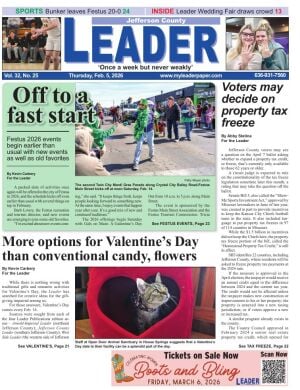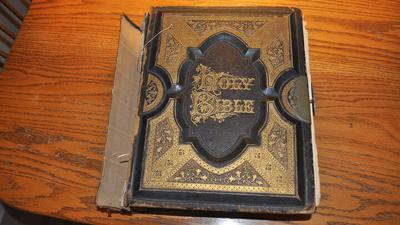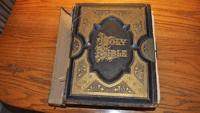How many Bibles do you own?
Think before you answer. The number may surprise you.
According to research by the Christian publisher Lifeway, 85 percent of U.S. households own a Bible, and the average household owns 4.3.
We got that beat by a mile.
I recently unpacked hundreds of books we had stored away for five years in our basement. In every third or fourth box, a Bible or a New Testament would emerge, like buried treasure, ready again for the light of day.
Some I had forgotten about, like the hardcover New King James Version from 1983 that I carried around so much back in the ’80s I had to duct-tape the binding. There was a “Promise Keepers” New International Version New Testament from 1996, two different softcover editions of the paraphrased Living Bible from 1977 and 1984, and a black imitation-leather King James Bible that was a gift to my late brother David back in 1956. There’s a near-new One Year Bible broken into 365 daily pieces and a Gideon Bible (hotel hardcover style) from 1975.
One of the newer Scriptures from the pack-aways was an ESV (English Standard Version) Study Bible I received as a gift in 1988. This ponderous tome runs 2,752 pages, not counting the map displays in the back. It could easily serve as a doorstop in a bank vault.
But of course, that’s not what Bibles are for. The Holy Bible, by far the best-selling book of all time, is meant for reading and heeding, not for gathering dust on your bookshelf. But is that how most of us are using it? Where does the Bible stand in our polarized culture today?
The American Bible Society, founded in 1816, started its State of the Bible research project in 2011. Every year it issues an updated report based on surveys of more than 3,000 adults across all 50 states.
The 2021 report is, as you might expect, a mixed bag. For churchgoing folk, there are encouraging findings. Twenty-four percent of Americans increased their Bible reading in this past COVID-pandemic year, while only 9 percent cut back. And 16 percent of Americans read the Bible at least four times a week, up from 12 percent the year before.
The researchers asked if our country would be better off, worse off or about the same without the Bible, and 54 percent responded, “worse off.”
The ABS asked, “Are the Bible’s teachings essential to sustaining the following American ideals?”
Here were the answers:
■ Faith: 72 percent yes, 13 percent no.
■ Hope: 71 percent yes, 14 percent no.
■ Love: 69 percent yes, 15 percent no.
■ Unity: 64 percent yes, 17 percent no.
■ Justice: 57 percent yes, 20 percent no.
■ Liberty: 51 percent yes, 21 percent no.
■ Democracy: 44 percent yes, 25 percent no.
The gradual decline in “yes” as you go from the high Biblical ideals to the more politically-charged ones is interesting. But that’s another story for another day.
A lot of the ABS research focuses on the levels of the public’s engagement with the Bible. There, the data aren’t so rosy. The attitude of a majority of Americans toward Scripture can best be described as: Take it or leave it.
“The tussle between those who esteem the Bible and those who do not (the extremes) is contrasted by the massive group of Americans in the middle, who are mostly indifferent to the Bible,” the report authors write.
The researchers at Lifeway came to the same conclusion.
“Most Americans don’t know firsthand the overall story of the Bible – because they rarely pick it up,” said Scott McConnell, executive director of LifeWay research. “Even among worship attendees, less than half read the Bible daily. The only time most Americans hear from the Bible is when someone else is reading it.”
The Bible stands ready to be read, interpreted and understood through the dictates of each person’s conscience. Abraham Lincoln, who for most of his life never darkened the door of a church, didn’t waver on the importance of the Good Book.
“It is the best gift God has given to man,” he wrote. “But for it we could not know right from wrong.”
One Bible stands out among all we own. It’s a giant family Bible, published in 1873, that my late cousin, Shirley Jondro, gave to me only months before she died early last year. Inscribed in front are the names and birth and death dates of my grandparents on my mom’s side, as well as those of my mom and her siblings, my aunt and three uncles.
Shirley put the Bible in a box, covered with a couple of layers of plastic wrap, for two reasons: the binding is falling apart, and mold rises from the yellowed pages as you turn them.
In its day this was the book of the realm, the Authorized King James Version replete with engraved illustrations and even the “Apocrypha,” the books accepted as scripture by Catholics but not by Protestants.
In a little over a year, that big Bible will be 150 years old. I’d like to preserve it for my great-great grandchildren, but I’m not sure how. One thing I am sure of, it will matter more to those future generations how much I put that great book into practice.
St. James had it right: “Be doers of the word, and not hearers only (James 1:22).”





